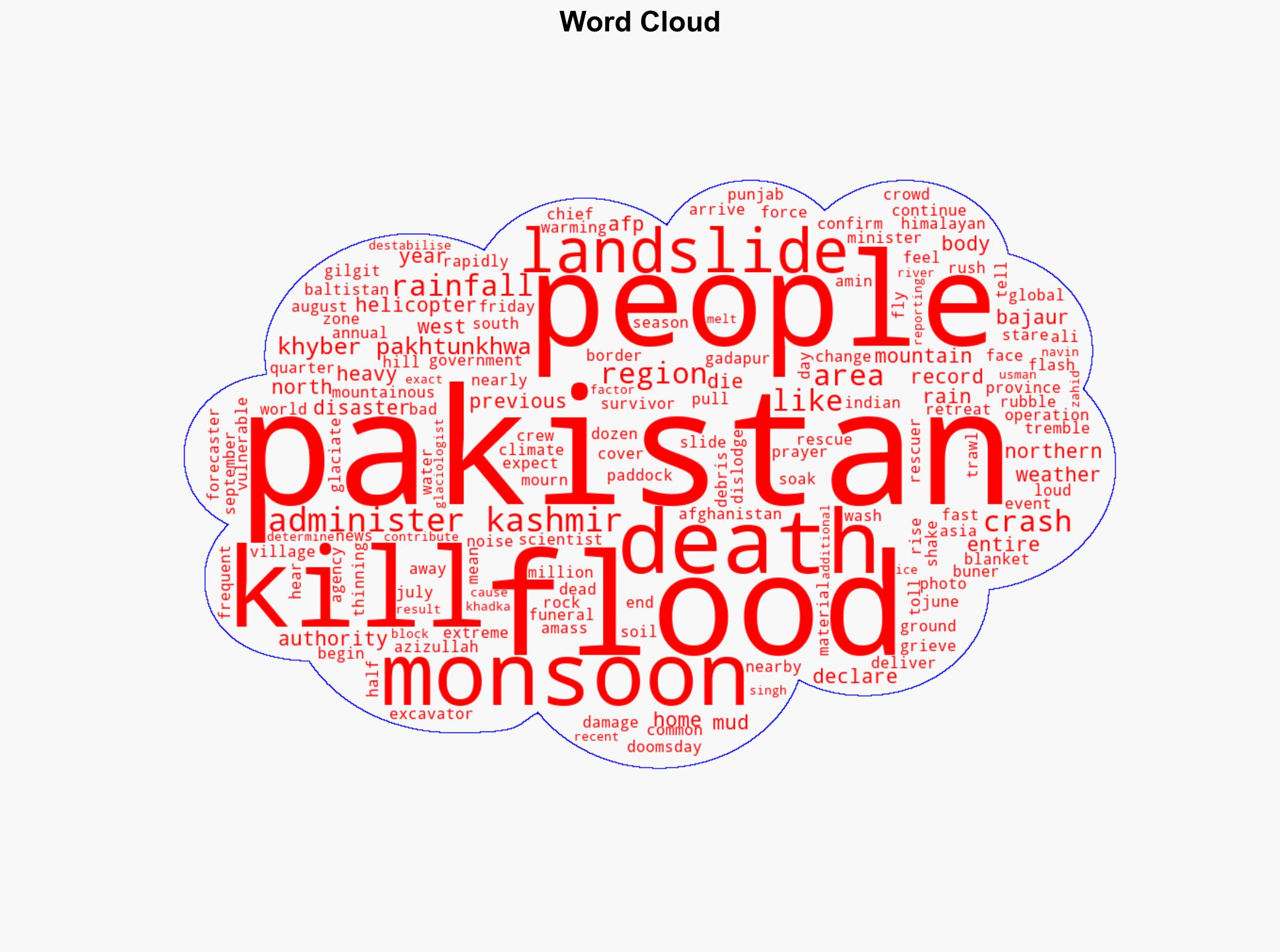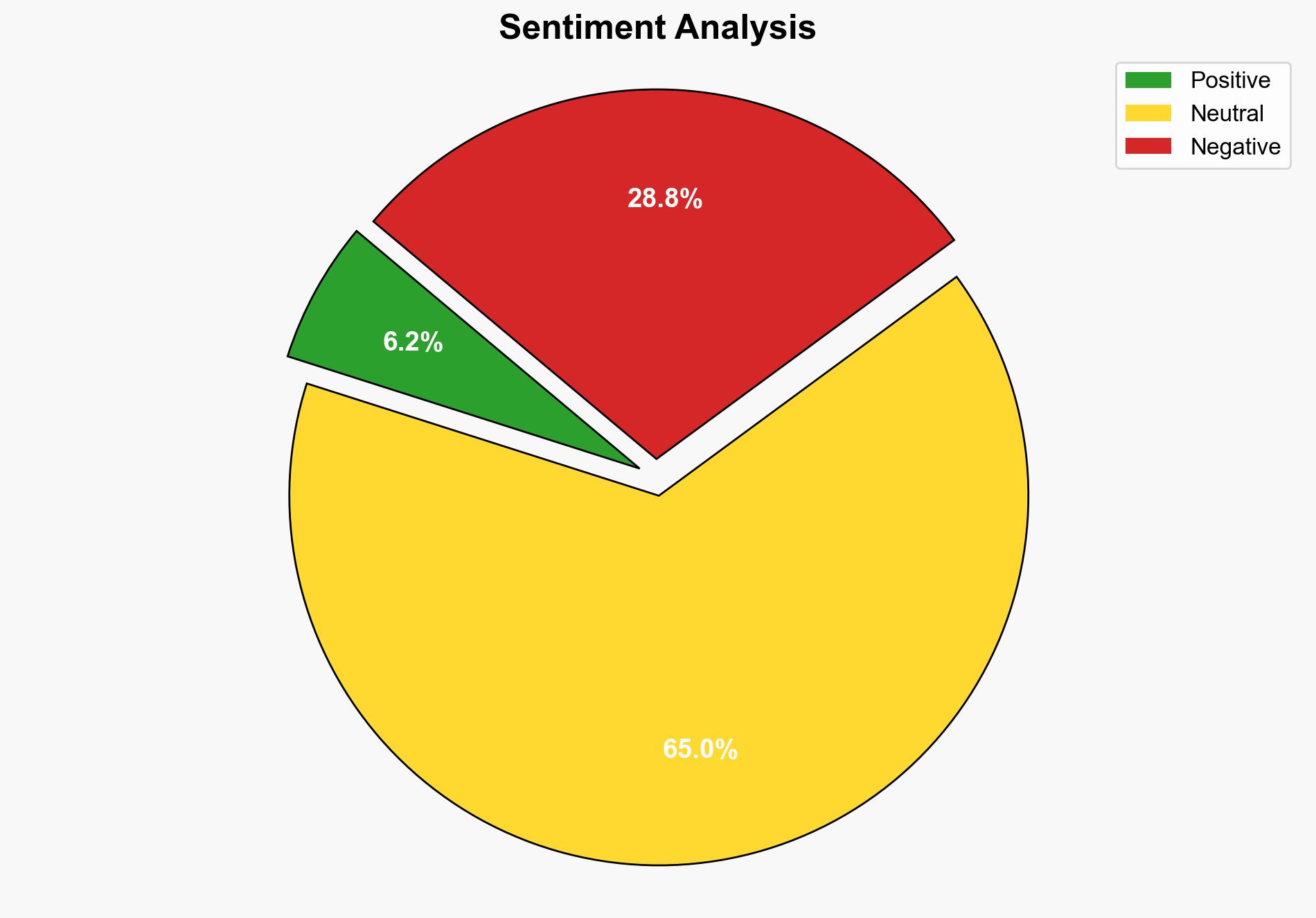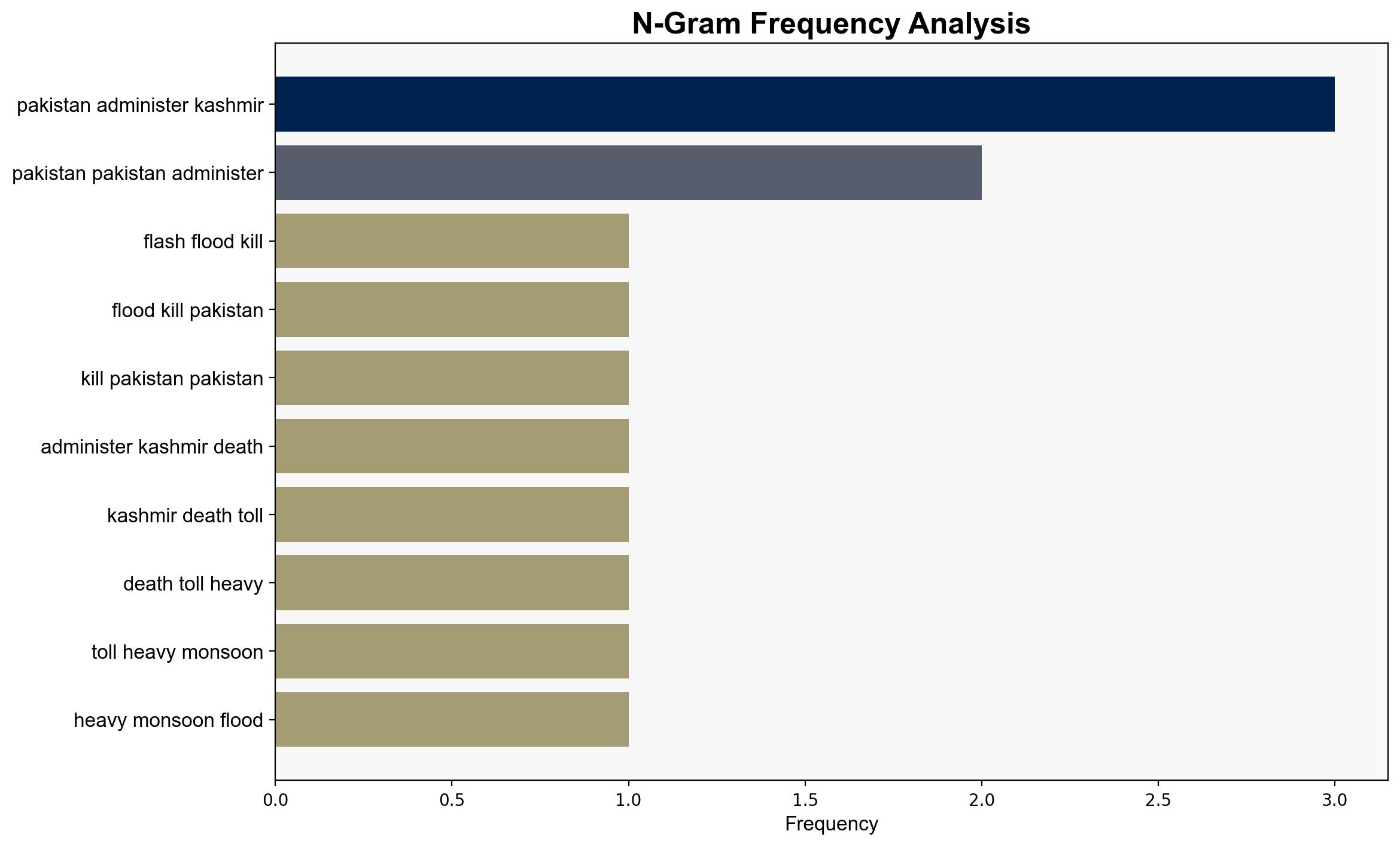Flash floods kill more than 300 in Pakistan and Pakistan-administered Kashmir – BBC News
Published on: 2025-08-16
Intelligence Report: Flash floods kill more than 300 in Pakistan and Pakistan-administered Kashmir – BBC News
1. BLUF (Bottom Line Up Front)
The recent flash floods in Pakistan and Pakistan-administered Kashmir, resulting in over 300 fatalities, are primarily attributed to extreme weather events exacerbated by climate change. The most supported hypothesis is that these floods are a direct consequence of increased monsoon intensity and glacial melt due to global warming. Confidence level: High. Recommended action includes enhancing regional disaster preparedness and climate adaptation strategies.
2. Competing Hypotheses
1. **Hypothesis A**: The flash floods are primarily due to natural climatic variations, with monsoon rains and glacial melt as contributing factors.
2. **Hypothesis B**: The floods are significantly exacerbated by anthropogenic climate change, leading to more intense monsoon rains and accelerated glacial melting.
Using Bayesian Scenario Modeling, Hypothesis B is better supported due to the correlation between increased frequency of extreme weather events and global warming trends, as reported by scientists.
3. Key Assumptions and Red Flags
– **Assumptions**:
– Hypothesis A assumes natural variability without significant human influence.
– Hypothesis B assumes a direct link between human activity and climate change impacts.
– **Red Flags**:
– Lack of precise data on the contribution of glacial melt to the floods.
– Potential underreporting of infrastructure vulnerabilities.
– **Blind Spots**:
– Insufficient focus on local governance and disaster response capabilities.
4. Implications and Strategic Risks
The floods highlight vulnerabilities in regional infrastructure and disaster response systems. There is a risk of further destabilization in affected areas, potentially leading to humanitarian crises. Economic impacts include damage to agriculture and infrastructure, while geopolitical tensions could rise if cross-border water management issues are not addressed.
5. Recommendations and Outlook
- Enhance early warning systems and community-based disaster preparedness programs.
- Invest in climate-resilient infrastructure to mitigate future risks.
- Best-case scenario: Effective international cooperation leads to improved disaster management and climate adaptation.
- Worst-case scenario: Continued extreme weather events exacerbate regional instability and humanitarian challenges.
- Most likely scenario: Incremental improvements in disaster response, with ongoing challenges due to climate change impacts.
6. Key Individuals and Entities
– Ali Amin Gadapur: Chief Minister of Khyber Pakhtunkhwa, involved in disaster response efforts.
– Usman Zahid and Navin Singh Khadka: Reporters providing additional insights into the situation.
7. Thematic Tags
national security threats, climate change, disaster management, regional focus





